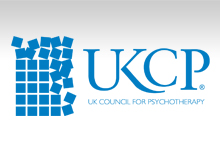There are a confusing array of approaches to psychotherapy and counselling; it can feel like a complete shot in the dark choosing one approach or therapist over another.
As a starting point, most essential is finding someone you feel comfortable with. It is widely recognised that the quality of relationship between client and therapist is integral in ensuring the therapy goes well, and I see one of my tasks as helping you to feel at ease. As such, I don’t label or diagnose people, and I don’t sit for hours in silence and once in while, nod my head.
The form of psychotherapy I practice is existential-phenomenological. Now, I appreciate this may sound like a bit of a mouthful, but really it means I take an unprejudiced approach to what you bring to therapy. It is a form of therapy grounded in philosophy as well as psychological theory. Its a way of exploring how you are currently living your life and a way of bringing to the fore what is important and has meaning to you.
Our initial session is used to consider our working together, exploring your goals, expectations, any anxieties about the process and any other questions you may have. We can also consider short-term or open-ended work, depending on what feels right for you.
An important part of my approach is to discuss how you feel your therapy is progressing and exploring how your sessions are working for you. If you feel a session was unproductive, or that you have wasted your time, please say so.
OK, what on earth is existential psychotherapy?
The existential-phenomenological approach to psychotherapy stems from a philosophical tradition developed by thinkers such as Kierkegaard, Nietzsche, Sartre, Heidegger, Husserl, Gadamer, Marcel, Merleau-Ponty, Emmanuel Levinas and then al the way back to Socrates. Existential-phenomenology seeks to develop an in-depth understanding of human existence. It challenges traditions that study the person in a reductionist manner or promote dualistic modes of thinking (e.g., mind vs. body or freedom vs. determinism).
Working from an existential perspective does not exclude psychological theory or practice. On the contrary, the existential psychotherapist can and does incorporate insights from a broad range of psychological models. However, it is an approach that is distinguished by a refusal to see the experience of being human as rigid or fixed. To put that in practical terms; what was seen as good mental health in 1914, differs from our picture of mental health in 2015, and by 2115 it will change again. Existential psychotherapy and counselling bares considerations like these in mind.
Existential-Phenomenological psychotherapy and counselling challenges the modern tendency to interpret the human condition through a narrow technological lens. The existential dimension deepens our understanding of what it is to live in our everyday circumstances through in-depth reflection on the meanings expressed in both experience and action. The phenomenological dimension encourages openness toward psychological reality by identifying and putting aside theoretical and ideological prejudgments. It focuses on the psychosocial conditions that help people deal with the difficulties of life.
Finally, the existential-phenomenological approach is ethical in recognising that the fundamental characteristic of being human is to be responsible to others. The contemporary emphasis on competitive and isolating individualism has undermined this call to be ethically bonded to others. Existential therapists are not detached technicians; they are responsibly committed to their clients.


